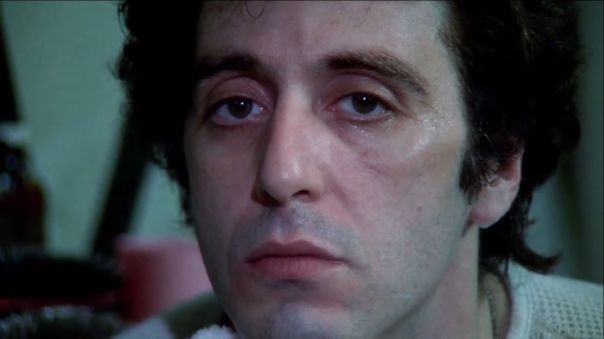This 80s Movie: Cruising (1980)
/
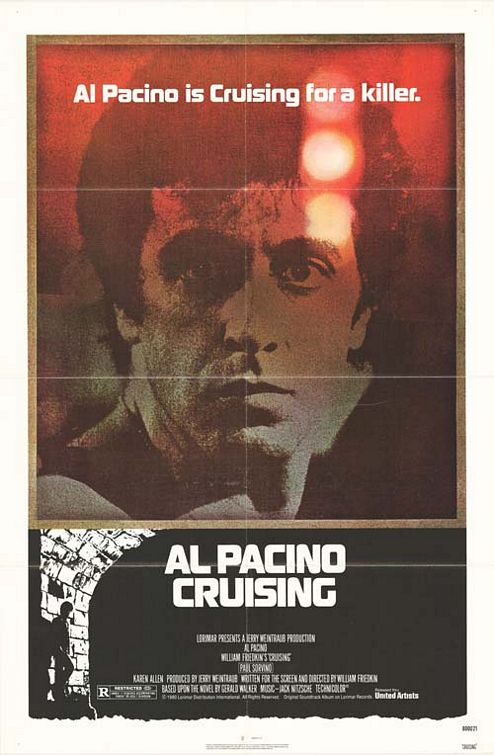
(spoilers ahead)
Cruising is a confused movie, confused about its intention, its story and ending, but also about what it wants to say about homosexuality. And, to get straight it, it should say something about homosexuality. Being one of the few movies to deal with the issue, it shouldn’t act like it doesn’t have an opinion on it. But the movie is so unfocused and messy that it shouldn’t be a real surprise. On the surface a crime mystery about a killer who kills gay men who indulge in the leather scene, the movie doesn’t do much but being grim, cold and dark, while having a protagonist that never allows us to know what is happening inside him. The movie got its attention only because it tackled homosexuality and supposedly showed gay sex in a graphic way before it had to be cut. Would this be a movie about a killer in a heterosexual swinger scene, it probably would never have seen the light of day.
But it is a movie about homosexuality, although, as it is claimed early on by Captain Edelson (Paul Sorvino), not about “the mainstream of gay life [but] heavy leather, S&M. It’s a world onto itself.” Be that as it may, that one sentence doesn’t distinguish it enough to make it just about this world, at least not for most people who were going to see the movie. This was the movie about homosexuality and that’s what it was viewed as. By ignoring that, the filmmakers, mainly writer-director William Friedkin, couldn’t help but reinforce some stereotypes about gay people, even while trying to get rid of others. But Friedkin also can’t help but try to go for shock value, which is of course Friedkin’s specialty. Here, though, it really hinders the movie from being more than “shocking.”
The movie starts interesting with two cops on patrol harassing two men in drag, shouting homophobic slurs at them before they take them in their car and force them to give those head. It’s not the most subtle stab at machoism, but it hints at an intriguing premise, which is almost completely dropped for the rest of the movie.
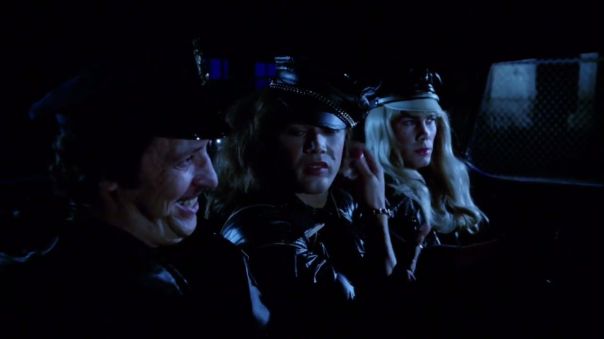
The problem with focusing on the leather scene is that it evokes certain clichés that people probably have about homosexuals anyway. First off, and that’s my main issue with this movie and most depictions of homosexuality, it’s all about sex. Gay men seem to want nothing else but fuck, all the time. Relationships are a rarity. So, seeing the Cockpit, one of the clubs shown in the movie, where all those men dance, showing their butts, flirting, kissing or, in a really unnecessary scene compared with all the rest, showing what they seem to do with their fists on a regular basis, does not help at all. It reinforces an image that doesn’t make gay people seem more acceptable. Yes, they are more tolerant towards sex (says the stereotype) and yes, the movie shows a New York free of worries about AIDS, but that doesn’t mean sex should be the main focus. The leather scene also makes everyone look brooding and sinister. There is some fun visible, but mostly it seems people try hard to be tough.
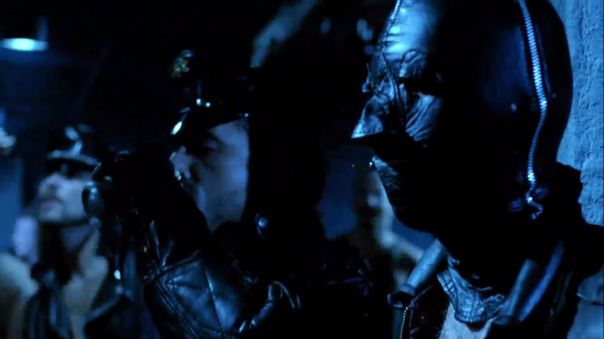
Friedkin’s love for shock moments doesn’t help the movie at all. What’s the point of showing body parts? The murders are very hard to watch because they’re so relentless and bloody (compare that to the shying away from any gore in Prom Night), especially since the victims’ fear is emphasized so much. And then there’s the gay porn footage inserted into the first murder scene. As the myth goes, it’s just a couple of frames, so it’s “subliminal,” again something Friedkin used in The Exorcist to great mythological effect, but what exactly is the point here? Showing gay porn to fight the MPAA’s fear of graphic sex and homosexuality is one thing, but why put it in the murder scene? Is there a symbolism of paralleling the penetration of a man’s back by a knife with a penis penetrating a man’s behind? That’s what it comes down to: coupling mean violence with gay anal sex. Aside from a silly joke, I cannot see any point in this.

The movie succeeds in a way in not ever portraying homosexuals as effeminate or extravagant. Steve Burns (Al Pacino) meets his neighbor who is just an average guy. And following Burns’ perspective as he dives deeper into this “world” (there’s the problem right there already, it’s a "different world"), where he has to learn its rules and is fascinated by it. But what does the movie think happens to him? That’s the main crux of the movie, that we never know what’s going on with him. He is mostly passive. He keeps up his relationship with Nancy (Karen Allen, completely wasted) until it doesn’t work anymore, although we never learn why.
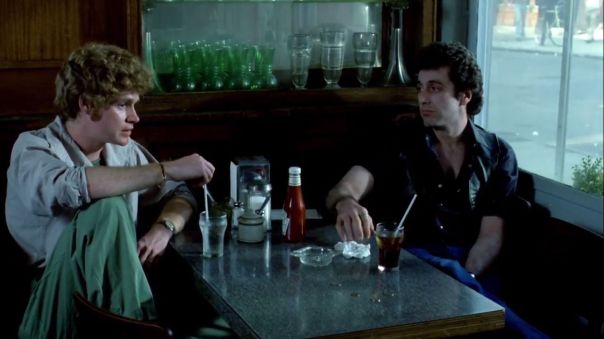

At some point the movie loses any interest in solving its mystery, making you wonder if there really is one. Burns at one point complains that the police beat up a suspect, just because he’s gay, but that one line is all the movie ever gets to say “politically.” After that moment the movie just stumbles along, as Burns stalks a man he suspects, who seems to have visions of his dead father telling him to kill homosexuals. Which he never actually says. This is not ambiguous, it’s just vague. We don’t really care anymore at this point, because the movie doesn’t care about its audience anymore and seems almost bored by itself. Burns gets more and more aggressive, attacks his suspect and the case is done. But we never really believe that and when another body shows up, we get suspicious. And then there is the last scene, in which Burns shaves, while Nancy puts on the clothes that look like the ones from the killer. And in the final shot Al Pacino looks at us, no expression on his face, challenging us in that meta-moment. But to what? To wonder what it was all about? To wonder if he’s the killer? Looking at the movie as it is, that makes no sense at all and neither adds nor takes away any of the movie’s barely existing message. It’s another *wink-wink* by the director, wanting to dare us without having a purpose behind it. The movie is like Pacino’s character or all the characters: slightly intriguing, cold, detached, with nothing to say. Which fits quite well into everything we’ve looked at this week. I wasn’t aware that 1980 is so fucking depressing.
